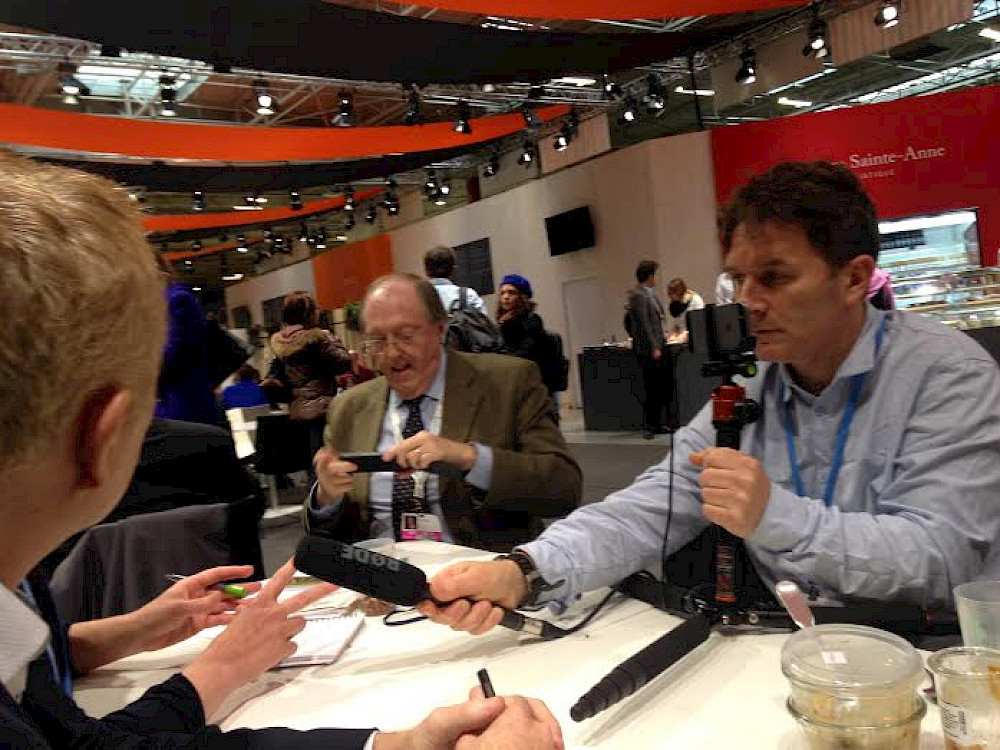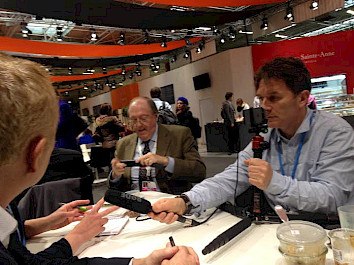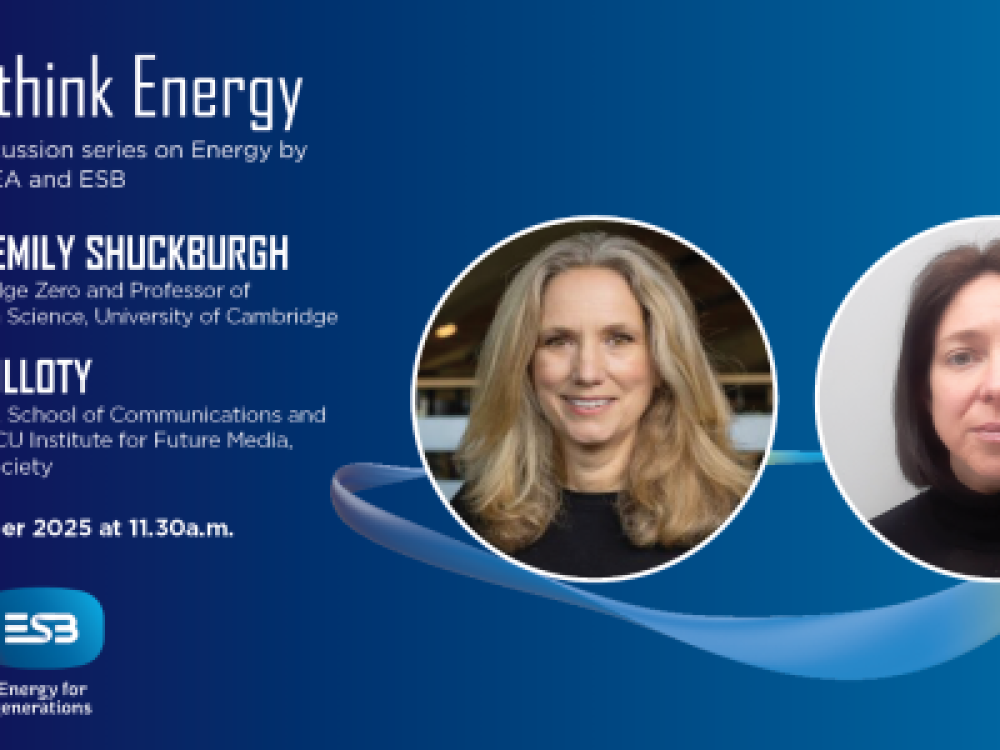The UN meets MoJo: How Journalists Covered the Paris COP
15 December 2015

At the recent UN conference on climate change in Paris, a wide range of communications strategies was deployed by activists, organisers, journalists and other interested parties. The news media were there in force, of course, with some 3,500 accredited journalists working at the Le Bourget site, but they did not have a monopoly on communications channels by any means.
For instance, the UN’s Momentum for Change showcased a new campaign aimed at essentially by-passing the news media and attempting to communicate the need to act to prevent climate change to younger people via different communications channels. One approach was to collaborate with Finnish games designer Rovio in producing a climate change version of Angry Birds. “You have to communicate with teens and millennials in the channels they’re already using,” said Blanca Juti of Rovio in Paris last week.
Other strategies involved releasing short films voiced by celebrities and music videos online. However, these were tools for strengthening public engagement on the issue and while they were “communication” about climate change, they were not journalism.
Other coverage - produced by NGOs - came closed to what is, or used to be, accepted as journalistic coverage. The An Taisce website hosted a blog shared by climate scientist Prof John Sweeney and activist Paul Price. Other NGOs, such as Trocaire and Friends of the Earth, also provided comment and analysis, as did climate blogger John Gibbons.
Social media was a constant presence at the conference. The hastag #COP21 - Twitter had designed special climate change emoticons which appeared automatically after #COP21 and #climatechange - hit 3m tweets over the course of the conference.
Two apps - the UN’s Negotiator app and a climate conference app - kept delegates up to date with press conferences and events. The UNFCC’s media portal broadcast live from four or five venues at once. It was a pretty sophisticated media experience, even if it did lack some of the TedTalks or Web Summit graphic wizardry.
Journalistic coverage of COP21 was extensive - traditionally, coverage of climate change peaks around UN conferences such as this. And given that this was the first Conference of the Parties to the UN Convention on Climate Change to try to reach a global agreement since the failed COP in Copenhagen in 2009, such media interest was predictable.
A necessarily brief analysis of Ireland’s coverage shows that many of the old tropes are still in evidence. From the scholarship of New Values we know that journalists like conflict, so much of the coverage on RTÉ was framed as “farming versus the climate”. Other coverage took the “personalisation” frame - who was winning and who was losing. The nature of the negotiations - with leaks about Russia or Saudi Arabia objecting to certain measures - lent itself to this framing approach.
Watching the Irish journalists at work at the Le Bourget conference venue, it was clear that requiring reporters to work across multiple platforms - filing print, online and video content - means that they do not have the time for primary research. While a well-resourced Reuters team compared agreement texts line by line themselves, the Irish journalists were seeking out secondary sources for their reactions.
The Irish coverage was generally of a high quality, and writing about technical climate change negotiations for a general audience is no easy task. Paul Melia and Harry McGee, who did most of the day-to-day reporting from Paris for the Irish Independent and Irish Times respectively, are carrying out an important social function: the public gets most of its information about climate change from the media, and they tend to associate high levels of coverage with importance.
Previously, climate change has had its moment in the media spotlight around UN conferences, and then it has faded from the news agenda almost completely. Normally it accounts for just 0.84% of all news coverage (and that’s in the Irish Times, which carries at least twice as much about climate change as any other Irish newspaper).
Reporting on climate change is not easy for journalists - there are many things that make it a poor fit for the kind of story that suits journalism - but it is important.
David Robbins is a member of FuJo and is a DCU researcher in the area of media representations of climate change. He attended COP21 as a member of the Irish delegation




